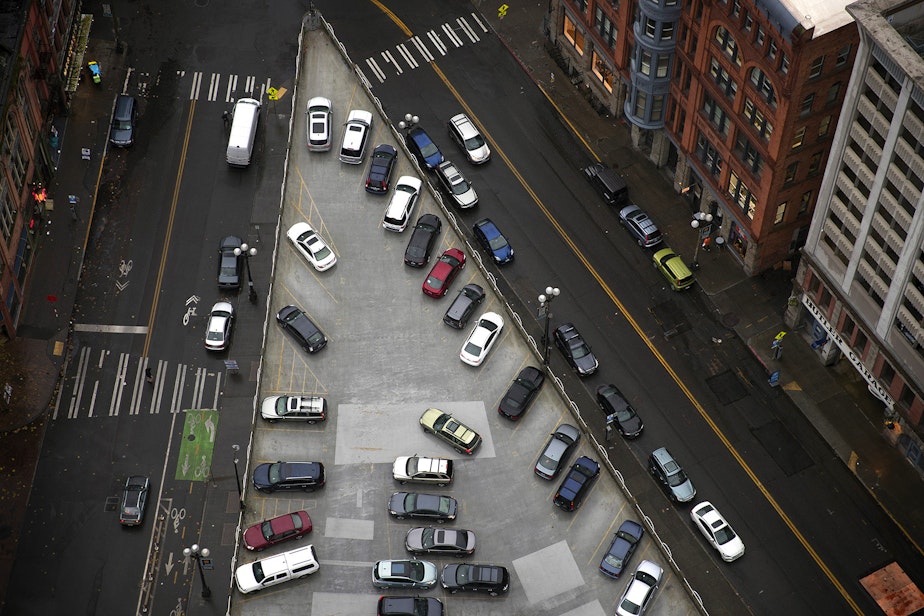Seattle parking may be getting better — or worse — depending on who you ask

The Seattle City Council has approved a set of changes on where people can park in the city.
The idea: make better use of the parking lots we have and build fewer new ones. Some residents, however, think it will make it harder to find parking as the city grows.
Under the measure:
- Apartment or office building owners will be able to rent out parking spots to people who don't live or work in the building. That's meant to fill in spaces that go empty at certain times of day.
- Landlords will no longer be able to require tenants to pay for a parking space. That could mean lower rents for people who forgo their parking space or just don't own a vehicle.
- Most new residential buildings in Seattle won't have to come with attached parking lots anymore.
The rules allow developers to build more units instead of parking, where in the past they had to offer a certain number of parking spaces. That will apply to apartments or condos within a quarter mile of high-frequency bus stops.
Councilmember Lisa Herbold voted against the bill saying it could lead to a shortage of parking.
"That in some neighborhoods may punish people who need their cars, specifically driving jobs Amazon (Fresh), Instacart, Uber and Lyft," Herbold said.
Opponents also say buses and light-rail don't come frequently enough to truly encourage people to go car-free. They say many residents, including the elderly and people with disabilities, will have fewer parking options and have to walk farther for transit.
The sponsor of the changes, Councilmember Rob Johnson, said consolidating parking makes sense as Seattle grows.
"Recent studies from King County and other places have shown that even in very dense neighborhoods, like Capitol Hill, as much as a third of the parking overnight is not being used. So what we've got here is a lot of parking and a lot of people looking for parking, and this allows us to marry the supply and the demand," Johnson said.
Some make the argument that limiting the growth of parking lots will encourage more people to bus and walk. Councilmember Mike O’Brien said it’s part of the city’s broader actions against climate change.
"We have to figure out how as a community we make that transition to a carbon-free — and sometimes that might be car-free — future. And it's going to involve significantly hard decisions like this," O'Brien said.
The changes are set to take effect in May.

